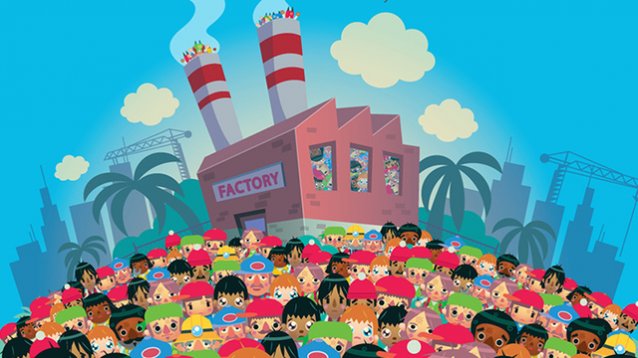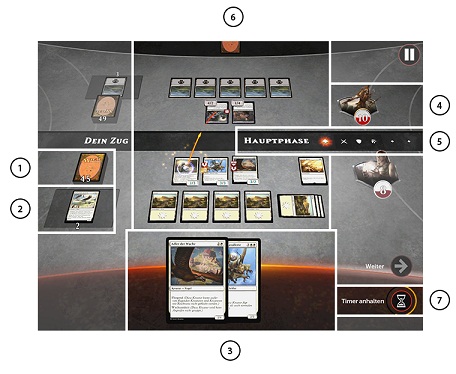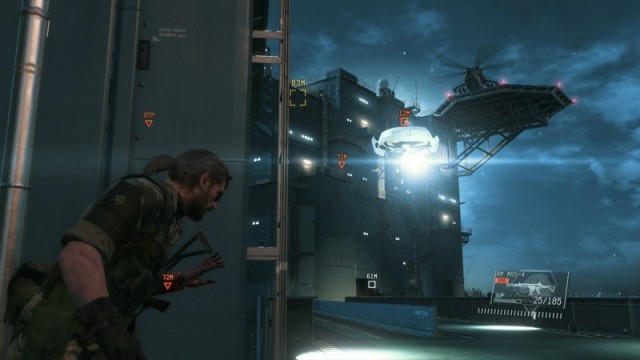


It appears the gatekeepers of Apple’s vaunted App Store, the largest mobile games outlet the world has ever seen, might be living in a different world than you and I. Last week, the App Store moderators made the decision to remove a game called Sweatshop HD from their service, citing the “uncomfortable” nature of the themes the game presents. As is fairly evident from the title of the game, it’s intended to be social commentary on sweatshops, and the developer has stated that it was made in an attempt to make players think about the origins of the clothing they buy.
Of course, Apple has a bit of an “uncomfortable” relationship with sweatshops themselves. They’ve been a long-time customer of Foxconn, one of China’s biggest and most notorious industrial manufacturers. The working conditions at Foxconn have been well-documented in Western media, and it wouldn’t be a stretch to call factories like their giant Shenzhen complex “sweatshops.” For this reason, Apple has a vested interest in keeping people in the dark about overseas labour conditions.

Unfortunately, that’s not even the worst of Apple’s trespasses against the freedom of developers to make games that have something to say. As much as Apple’s seeming conflict of interest in regards to this specific game would be a pretty nefarious reason to remove it from their App Store, their actual reason for removing it is much, much worse: Apple thinks games should entirely avoid making any sort of commentary, or addressing serious subjects in any way.
The App Store submission guidelines explicitly state that serious subject matter should be reserved for books, rather than games. Their exact words are as follows:
We view apps different than books or songs, which we do not curate. If you want to criticize a religion, write a book. If you want to describe sex, write a book or a song, or create a medical app. It can get complicated, but we have decided to not allow certain kinds of content in the App Store.
As I said earlier: Apple is clearly living in a different universe than those of us who actually play the games they’re so heavy-handedly moderating. The argument over whether games are art, or whether games can tackle serious social issues, has already been settled – it’s been settled for years now. The answer to both questions is a resounding “yes,” and there’s countless examples of why this is true on just about every gaming platform known to man.

From the tiniest of indie games to the biggest blockbuster hits, games have proven themselves more than capable of offering commentary on serious social and political issues. On one end of the spectrum, a tiny project like the free Flash game Tower of Heaven does a fantastic job of offering a critique of organized religion – just the kind of critique Apple explicitly says they believe belongs in books instead of games. On the complete opposite end of the development spectrum, we have the Bioshock series, which has offered competent and intelligent political commentary on objectivism and right-wing ideology, over the span of three triple-A games and more than five years of releases.
Despite all of this, Apple continues to bury their head in the sand and pretend that games are still merely a form of juvenile entertainment. This attitude has come at a great cost to the developers making the sort of intelligent, worldly games that Apple hates so much – and not just the folks who made Sweatshop HD. Several other games and apps have been removed or rejected by the App Store for having too much to say for themselves, including Endgame: Syria, a game about the ongoing Syrian civil war. Who knows how many other serious games never saw the light of day, because their would-be creators knew Apple would never allow them to be published?
The worst part of all this is that Apple hasn’t been given any compelling business reason to change their stance on the issue. They’re still raking in App Store money by the bushel, and intelligent social commentary isn’t the kind of thing that’s going to help them move more units anyways; a quick look at the top-selling iOS games right now will assure you of that. It’s a nice idea to think that we could all vote with our wallets, but in this case, the App Store’s momentum is far too massive to put much of a dent in.
As far as I can tell, the only answer right now is to keep making smart, passionate, literate, and incisive games, and keep providing examples of how wrong Apple is about this whole thing. Like comic books and rock-and-roll music before them, games can eventually put to rest the ridiculous notion that they are a simple distraction, and prove that they can and do have an important cultural contribution to make. Inevitably, Apple will find themselves on the wrong side of history, and that’s a fact we can all take solace in in the mean time.




 Fallout 4 Silver Shroud costume location / side quest guide
Fallout 4 Silver Shroud costume location / side quest guide Mortal Kombat X Guide: How to Play Johnny Cage
Mortal Kombat X Guide: How to Play Johnny Cage How to Unlock FOBs without any Invasion in MGS V: The Phantom Pain
How to Unlock FOBs without any Invasion in MGS V: The Phantom Pain Child of Eden Achievements list
Child of Eden Achievements list Murdered: Soul Suspect Wiki – Everything you need to know about the game .
Murdered: Soul Suspect Wiki – Everything you need to know about the game .